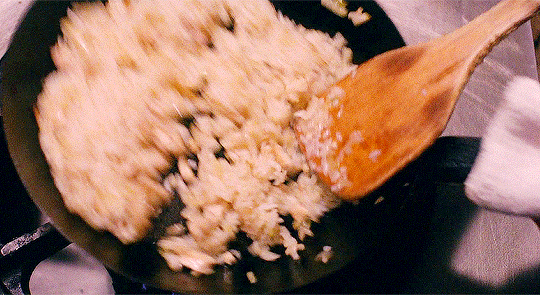Text

Friendship with genki has ended - pixiv novels is now my best friend 🤝
114 notes
·
View notes
Text
レタスクラブ
I wanted to recommend レタスクラブ to advanced Japanese learners.

レタスクラブ (Lettuce Club) is a site that has both レシピ and 読み物 that someone introduced me to recently. I came for the 読み物, but the レシピ looks good too.
I have been reading through some of the comics under the 読み物 section 趣味, which has a variety of artists and themes to choose from. This is definitely a site for advanced readers, but if you'd like to try to navigate around the site you can practice reading.
Start Here for Comics, then try:
趣味
くらし
育児・子育て
Happy reading!
100 notes
·
View notes
Text
A little reminder(s) on second language/ foreign language learnering
Even native speakers make typos.
Even native speakers say the wrong word.
Even native speakers sometimes forget how to spell/write a word/character.
Studying for a test is not the same as learning to communicate.
Scores don’t mean anything other than your retention of a specific set of information and should be used as a progress tracker not and end mark.
Though I’m all for testing and such, it’s important but it’s not the be-all end-all to mark how well you know something, and a lot of it is geared to a specific set of learners who have a very specific learning style.
If you say something and the other person understands you–or they say something and you understand them.. congratulations you spoke in a different language.
6K notes
·
View notes
Text
この3語も、似ている
〇〇で働く(はたらく) = to work at 〇〇
〇〇に勤める(つとめる) = to be employed at/by 〇〇
〇〇に努める(つとめる) = to endeavor to do 〇〇, try hard at 〇〇
42 notes
·
View notes
Text
Level 1 of learning a language is thinking that every word in your language has a direct translation to your target language, and if a word has two meanings in one language it’ll have the same two meanings in another language. (“忙しい means busy, so that means I can say that the park was 忙しい, right?”)
Level 2 of learning a language is realising that that’s actually supremely unlikely, statistically speaking, which means you need to start using a monolingual dictionary to understand meaning without your native tongue getting in the way.
Level 3 is realising that there are actually shitloads of cases of level 1 actually being true…
とる means to take (an object), but also take (a photo)
鋭い means sharp (knife), but also sharp (mind) and honed (sense of smell)
受け入れる means to accept (physically, e.g. a gift) and also accept (mentally, come to terms with)
取り上げる means to pick up (physically), pick up (a news story), AND take up (e.g. a new hobby)
370 notes
·
View notes
Text




カプすけの
カプすけ = the cute ice cream cone🍦mascot (He ends his sentences with 「カプ」 like how Naruto says 「だってばよ!」)
の = possessive particle
あたま = head

いちごのつみかた
いちご = strawberry 🍓
摘む (つむ) = to pick
方 (かた) = method (how to)
カプすけの いちごあつめ
あつめ= collecting
よつばのクローバーを 見つけたカプ〜
よつば= a plant having 4 leaves on 1 stem
クローバー = clover 🍀
見つける (みつける)= to find
① トレーの下 から軽く押し出すカブ
トレー = tray (The chocolates come in a little plastic tray.)
下= under, below (トレーの下から= from under the tray)
軽く(かるく; conjugated from 軽い) = gently
押し出す (おしだす) = to squeeze out, to push out
② 落ちない ように手を 添えて取り出すカブ
落ちない (おちる) = to fall, to drop
ように = in order to, so that
手 (て) = hand
添えて (そえて; from 添える) = to prop up, to add as support
取り出す (とりだす) = to take out, to pick out
31 notes
·
View notes
Text
12月の覚えた単語
パート1☆

執筆 しっぴつ writing (n.)
ズキズキ throbbingly (of pain)
口実 こうじつ excuse
途端 とたん just (now, at the moment, etc.); just as; in the act of; as soon as
記事 きじ article; news story
汚れ よごれ dirt; filth; stain; blot; spot
抜け道 ぬけみち shortcut
痕跡 こんせき trace; mark; sign; evidence
絞る しぼる to narrow down
妄想 もうそう delusion
叱る しかる to scold; to chide
#日本語#日本語の勉強#単語#langblr#language learning#japanese language#漢字#studyblr#study blog#study motivation#anime#アニメ#free-learner
39 notes
·
View notes
Text
Asking the time - particles ね and よ
(。•̀ᴗ-)✧ N5 grammar [ことのは lesson 8]

What time is it?
何時 (なんじ) is an expression that means "What time is it?"
何 (なん) means "what" and 時 (じ) is a suffix which indicates "hour(s)".
ふん or ぷん is used according to the last number before this suffix which means "minute(s)"
note: sometimes it is acocmpained by 午前 (ごぜん) indicating A.M. or 午後 (ごご) P.M. placed in front of the time.
example: A: 今(いま) , 何時ですか B: 午後 (ごご)10時 (じ)22分 (ふん)です
translation: A: What time is it? B: It's 10.22 pm
particles ね and よ
The particle ね is placed at the end of the sentence to express approval, and confirm what the speakers says. It means "right?"
example: 日本語 (にほんご)は 難(むずか) しいですね。
translation: Japanese is difficult, right/isn't it?
The particle よ is placed at the end of the sentence to confirm and insist on the speaker's opinion. It is also used to advice or inform something new for the listener.
example: このパンは 美味(おい)しいですよ!
translation: this bread is delicious! (you should try it)
またね~@inkichan
꒰ა ˚₊ ✧・┈・╴﹕꒰ ᐢ。- ༝ -。ᐢ ꒱﹕╴・┈・𐑺 ‧₊˚໒꒱
83 notes
·
View notes
Text
8月の覚えた単語 一

嫉妬深い ・しっとぶかい ・ (deeply) jealous
理不尽 ・ りふじん ・ unreasonable; irrational, absurd
ムッとする ・ moody; huffy; to be offended
修復 ・しゅうふく ・ repair; mending
発狂 ・はっきょう ・ madness; craziness; insanity
軽々 ・ かるがる ・ lightly
清潔感 ・ せいけつかん ・ (sense of) cleanliness and/or freshness; clean impression
距離感 ・ きょりかん ・sense of distance (physical or emotional)
時期的 ・ じきてき ・ time-wise
拘る ・こだわる ・ to be obsessive (about); to be particular (about); to be uncompromising; to get stuck
🍬 please correct any mistake/error
#studyblr#japanese#japanese studyblr#study motivation#language learning#vocabulary#vocab list#日本語#日本語勉強#単語#free-learner
39 notes
·
View notes
Text
Sentenceと(考えられている・思われている)
とびら- Grammar Chapt 4
Using と考えられている/ 思われている means ‘it is generally believed that/ it is considered that’.
The difference between the two phrases is that 考えられている is an opinion that has arrived through logic, and 思われている is an opinion based on emotion.
Example- 日本人はとても丁寧だと思われている。= It is generally believed that Japanese people are very polite.
As you can see, 思われている has been used because this opinion is not derived from fact or logic, but an emotion based opinion.
46 notes
·
View notes
Text
恐縮
きょうしゅく
① feeling (much) obliged; being (very) grateful; being thankful (business Japanese, formal Japanese)
いつもお世話になっております。ご連絡いただきまして恐縮でございます。
いつも おせわ に なって おります。ごれんらく いただきまして きょうしゅく で ございます。
We appreciate your continued support. Thank you for contacting us.
② feeling sorry (for troubling someone); feeling ashamed (e.g. of an error); feeling embarrassed (e.g. by someone's compliments, hospitality, etc.) (business Japanese, formal Japanese)
恐縮ですが、来週の約束をキャンセルさせてください。
きょうしゅく です が、らいしゅう の やくそく を キャンセル させて ください。
I am very sorry, but I must cancel our appointment for next week.

65 notes
·
View notes
Text
Japanese vocab: Valentine’s day

バレンタインデー - Valentine’s day

ホワイトデー - White day
マシュマロデー - White day (Marshmallow day)
オレンジデー - Orange day or Partner day
彼女 - かのじょ - Girlfriend
彼氏 - かれし - Boyfriend
情 - じょう - Feelings, emotion, sentiment, passion, affection
感情 - かんじょう - Emotion, feeling, feelings, sentiment
デート - Date
プレゼント - Present
贈り物 - おくりもの - Present, gift
お土産 - おみやげ - Present, souvenir
飴 - あめ - Candy
キャンディー - Candy, sweets
チョコレート - Chocolate
義理チョコ - ぎりチョコ - Obligation Chocolate
本命チョコ - ほんめいチョコ - True feelings chocolate
友チョコ - ともチョコ - Friendship chocolate
薔薇 - ばら - Rose ( It can also be written in katakana: バラ )
花束 - はなたば - Boquet
縫いぐるみ - ぬ いぐるみ - Plush
テディーベア - Teddy bear
バレンタインカード - Valentine’s card
心 - こころ - Heart, mind, spirit
ハート - Heart
ロマンス - Romance
恋愛小説 - れんあいしょうせつ - Love romance, love story
恋 - こい - Romantic love
愛 - あい - Love, affection, care
恋愛 - れんあい - Love, love-making, passion
愛する - あいする - To love
… が 好きです。 - … が すきです。- I like …. (You can use 大好き・だいすき if you want to say: I really like…)
あなたが好きです - I like you
愛してる - あいしてる - I love you
キスする - To kiss
キス - Kiss
接吻 - せっぷん - Kiss, kissing
イチャイチャ - Flirting, making out
抱く - いだく - To hug, to embrace
寄り添う - よりそう - To get close, to cuddle close together
キューピッド - Cupid
- Dzseni

3K notes
·
View notes
Text
To miss someone/ something
I recently got these two phrases confused, so I’ll write it down here for future reference and hopefully this’ll help you not make the same mistake!
To miss someone- you use 寂しい- さびしい. For example- 彼が寂しがる= I miss him
To miss something- you use 恋しい-こいしい. For example- 日本の食べ物が恋しい= I miss Japanese food
If you get these mixed up Japanese people might be able to still understand you but they’d be a little confused.
131 notes
·
View notes
Text
幸災楽禍
こうさいらくか
Being happy at the misfortune of others

82 notes
·
View notes
Text
feb. vocab. part 二

ぼったくり ・ bottakuri ・ rip-off, unfair charging
揃える ・ そろえる ・ soroeru ・ to make uniform/even/match, to collect/gather/get together/complete, to arrange/put in order/prepare
乱れる ・ みだれる ・ midareru ・ to be disordered/disarrayed, to be discomposed/disturbed, to lapse into chaos
はぐらかす ・ hagurakasu ・ to dodge (e.g. a question), to evade
果てしない ・ はてしない ・ hateshinai ・ endless, boundless, everlasting
軽薄 ・ けいはく ・ keihaku ・ superficial, shallow, frivolous
こりごり ・ korigori ・ being fed up, bad experience, learning from a bad experience, having had enough (of something unpleasant)
下ネタ ・ しもねた ・ shimoneta ・ dirty joke, indecent topic
圧巻 ・ あっかん ・ akkan ・ highlight, best part
口直し ・ くちなおし ・ kuchinaoshi ・ removing a bad taste, cleansing one’s palate
🦋 please correct any mistake/error
#studyblr#study motivation#単語#studyspiration#japanese#langblr#language learning#language#日本語勉強#日本語#vocabulary#vocab list#free-learner
42 notes
·
View notes
Text
The funniest thing about learning a new alphabet is when you can finally read words but have no idea what it says
14K notes
·
View notes









